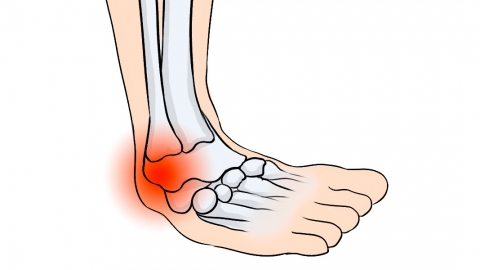What causes pain in the sole of the foot?
Heel pain may be caused by overexertion, wearing improper footwear, plantar fasciitis, gout, or heel spurs. Symptoms can be improved through rest, changing shoes, or medication. If pain persists or is accompanied by redness, swelling, or limited mobility, prompt medical attention is recommended.
1. Overexertion: Prolonged standing, walking, or excessive exercise can lead to strain and fatigue of the foot muscles, causing pain that may slightly improve with rest. It is recommended to reduce physical activity, soak feet in warm water for 15 minutes daily, and gently massage the soles to relax the muscles.
2. Improper Footwear: Wearing high heels or tight shoes can cause uneven pressure and tissue compression on the sole, leading to pain that worsens with prolonged use. It is advised to switch to comfortable, soft-soled shoes, avoid high heels, and choose footwear with arch support to reduce pressure on the sole.

3. Plantar Fasciitis: Repeated strain and micro-tears in the plantar fascia lead to inflammation, causing significant pain upon waking or during walking, which may ease slightly with movement. Under medical guidance, medications such as celecoxib capsules, diclofenac diethylamine gel, or eperisone hydrochloride tablets may be used to relieve symptoms.
4. Gout: Abnormal uric acid metabolism leads to deposition of urate crystals in the joints of the foot, causing pain along with joint redness, swelling, and warmth. Under medical supervision, medications such as allopurinol tablets, febuxostat tablets, or colchicine tablets may be prescribed to manage symptoms.
5. Heel Spur: Bone spurs form due to calcaneal bone overgrowth, irritating surrounding tissues and causing pain, especially when walking, as the spur presses against soft tissues. As directed by a physician, medications such as ibuprofen sustained-release capsules, naproxen sodium tablets, or injections of triamcinolone acetonide may help alleviate symptoms.
Daily care includes wearing appropriate footwear, avoiding overuse, soaking feet in warm water and massaging the soles daily, maintaining a healthy weight to reduce foot strain, and performing gentle foot stretching exercises to promote foot health.




